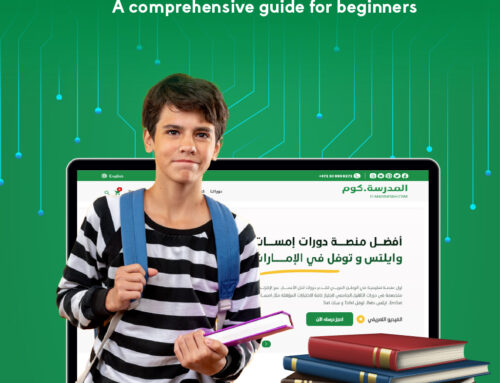
In the pursuit of global education and career opportunities, the International English Language Testing System (IELTS) has become a benchmark for assessing English language proficiency. Among its four components, the IELTS Listening section poses a unique challenge, especially for test-takers in the United Arab Emirates (UAE). Achieving success in this section requires not only honing listening skills but also implementing effective techniques to improve understanding. This essay explores various strategies to enhance focus and comprehension during the IELTS Listening test, with a particular focus on the UAE context.
Understanding the IELTS Listening Section
Before delving into specific strategies, it is essential to grasp the structure and demands of the IELTS Listening section. This component consists of four recorded monologues and conversations, each followed by a set of questions. Test-takers are required to listen attentively and answer the questions based on the information presented in the audio. The ability to comprehend various accents, dialects, and speech patterns is crucial for success in this section.
Online Training Courses for the IELTS Test
In the digital age, online resources have become instrumental in IELTS preparation, offering flexibility and accessibility to candidates worldwide. Online training courses for the IELTS test provide a structured approach to mastering the Listening section. These courses often include a variety of audio materials that mimic the diversity of accents and speech styles encountered in the actual test.
Furthermore, interactive exercises and simulated test scenarios help candidates develop their concentration and listening skills. Through repeated exposure to different accents, test-takers in the UAE can build confidence in deciphering varied speech patterns, ultimately contributing to the improvement of understanding during the IELTS Listening.
Strategies for Improvement of Understanding during the IELTS Listening
Active Listening Techniques
One fundamental and indispensable aspect of enhancing understanding during the IELTS Listening section lies in the deliberate cultivation of active listening skills. It is paramount that test-takers direct their focus towards staying thoroughly engaged with the audio, displaying a conscious effort to mitigate potential distractions that might impede their concentration. In this context, adopting specific techniques such as meticulous note-taking and the strategic underlining of key points emerges as an invaluable practice. These techniques not only serve to capture and highlight essential information but also play a pivotal role in the retention of critical details. By actively participating in the intricate listening process, candidates not only navigate the nuances of spoken language but also fortify their proficiency in deciphering diverse accents and speech patterns—a skill that is undeniably crucial for triumph in the challenging terrain of the IELTS Listening section.
Predictive Listening
Predictive listening, a skill of paramount importance in the IELTS Listening section, transcends the mere act of passive reception. It goes beyond the surface of auditory perception by involving the test-takers in an intricate dance with context and precedent content. This sophisticated technique empowers candidates not merely to react to the presented information but to proactively anticipate what might unfold next. In essence, it encourages them to engage in a mental dialogue with the audio, making educated conjectures about the upcoming content. This proactive approach significantly augments their ability to not only follow the narrative seamlessly but also to glean the finer nuances embedded in the spoken discourse. Within the dynamic framework of the IELTS Listening section, predictive listening emerges as a valuable cognitive tool, serving as a guiding compass for unraveling the intricate layers of audio complexity. The development of predictive listening skills becomes, therefore, intricately entwined with the broader goal of improvement of understanding during the IELTS Listening, marking a pivotal milestone in the journey toward language proficiency and successful test outcomes.
Repeated Practice with Authentic Materials
To acclimate effectively to the diverse accents and speech styles presented in the IELTS Listening section, it is imperative to engage in repeated and purposeful practice with authentic materials. This involves not only utilizing practice tests but also incorporating a variety of resources such as podcasts and real-life recordings. These materials expose candidates to a broad spectrum of voices and linguistic nuances, mirroring the diversity encountered in the actual test. The significance of regular exposure to authentic materials cannot be overstated; it plays a pivotal role in the improvement of understanding during the IELTS Listening. By immersing themselves in these real-world examples, test-takers in the UAE not only familiarize themselves with different accents but also develop a keen sensitivity to the intricacies of English communication as it is naturally spoken. This sustained exposure builds confidence and proficiency, ultimately contributing to a more nuanced and comprehensive grasp of the language during the IELTS Listening test.
Analyzing Audio Texts in IELTS
Analyzing Audio Texts in IELTS Listening section is a critical and intricate aspect of effective preparation. Developing a comprehensive understanding of the structure and content of these audio materials is essential for success in this particular component of the test. The process of Analyzing Audio Texts in IELTS goes beyond merely listening; it requires a systematic approach involving the dissection of information presented, the identification of key details, and the discernment of relationships between different pieces of information. This analytical skill serves as a linchpin for answering questions accurately, as it empowers test-takers to not only grasp the explicit details but also to infer implicit meanings and connections within the audio. The ability to extract relevant information from the audio and apply it to the given context is vital for navigating the complexities presented in the IELTS Listening section. Therefore, honing the skill of Analyzing Audio Texts in IELTS is not just a preparatory step; it is a fundamental strategy for achieving success and improving the overall understanding during the IELTS Listening test.
Selective Listening
Selective listening, a strategic technique employed in the IELTS Listening section, involves the intentional focus on specific information while adeptly filtering out non-essential details. Recognizing the constraints of limited time during the test, the importance of selective listening becomes even more pronounced. This invaluable skill empowers candidates to efficiently identify and process key information within the given timeframe. As candidates in the UAE hone this skill, they not only enhance their capacity to discern crucial details amidst the inherent audio complexity but also contribute significantly to the broader goal of the improvement of understanding during the IELTS Listening. The strategic application of selective listening, therefore, emerges as a cornerstone in the arsenal of techniques aimed at optimizing performance in this critical section of the IELTS examination.
Identification of Main Ideas and Supporting Details
Identification of main ideas and supporting details is undeniably a cornerstone of triumph in the IELTS Listening section. It demands a multifaceted approach, necessitating the recognition not only of the primary message or topic within the audio but also a comprehensive understanding of supplementary information that serves to reinforce and contextualize it. The cultivation of this skill is an intricate process, demanding not just attentive listening but also the nuanced ability to discern between what is essential and what might be deemed peripheral. Through consistent and purposeful practice in identifying main ideas and supporting details, candidates can significantly elevate their proficiency and contribute substantially to the improvement of understanding during the IELTS Listening. This continuous refinement of the ability to extract key information ensures that candidates are not only adept at grasping the central themes but also adept at discerning the nuanced details that may be pivotal in responding accurately to the subsequent set of questions.
Training to Understand Different Dialects in IELTS
Training to Understand Different Dialects in IELTS is a critical aspect that warrants specific attention, given the test’s global nature and the linguistic diversity it encompasses. The proficiency to decipher various English dialects becomes imperative for success in the IELTS Listening section. This necessity is particularly pronounced for test-takers in the UAE, where English is frequently acquired as a second language, adding an additional layer of complexity to the linguistic challenge. The exposure to diverse accents, a common feature in the IELTS test, becomes particularly challenging in this context. However, acknowledging the unique needs of candidates from the UAE, specific training strategies can be strategically employed to bridge this gap. By focusing on targeted approaches that enhance the ability to comprehend different dialects, candidates can fortify their skills, thereby not only meeting the demands of the IELTS Listening section but also advancing their overall English language proficiency. This concerted effort contributes significantly to the improvement of understanding during the IELTS Listening, aligning with the nuanced linguistic expectations set by the IELTS examination.
Dialect-Specific Listening Practice
Dialect-specific listening practice constitutes a specialized and targeted strategy aimed at honing the ability to understand diverse accents commonly encountered in the IELTS test. This involves a deliberate focus on materials featuring speakers with accents representative of various English-speaking regions, including but not limited to British, American, Australian, and Canadian English. By immersing themselves in content that authentically mirrors the linguistic diversity present in the IELTS test, candidates can systematically familiarize themselves with the nuanced variations in pronunciation, intonation, and speech patterns specific to each dialect.
This intentional and focused exposure serves as a valuable preparatory step, empowering candidates with the skills needed to decipher the intricacies of spoken language in a test setting. The targeted approach not only enhances their ability to recognize and understand different accents but also cultivates an awareness of the subtle cultural influences that may impact communication. Through dialect-specific listening practice, candidates in the UAE can build a robust foundation for effective communication comprehension, contributing significantly to the overarching goal of improvement of understanding during the IELTS Listening section.
Cultural Immersion through Multimedia
Cultural immersion through multimedia, encompassing a wide array of sources such as movies, TV shows, and online videos, offers a rich and nuanced exposure to different dialects. By actively engaging with authentic content, test-takers not only have the opportunity to hear various accents but also gain insights into the cultural contexts that influence speech patterns. This immersive experience extends beyond mere language proficiency, contributing holistically to the improvement of understanding during the IELTS Listening. It goes beyond the confines of linguistic intricacies, fostering a deep familiarity with the diversity of English language usage embedded in real-life situations. The inclusion of cultural elements enhances not only the comprehension of distinct accents but also the ability to interpret subtle nuances and contextual cues within the audio, thereby enriching the overall listening experience for candidates preparing for the IELTS test.
Integration of Techniques for Improvement of Understanding during the IELTS Listening
To facilitate a comprehensive approach to improvement, candidates can integrate the aforementioned techniques into a structured study plan. The table below outlines a step-by-step guide for incorporating these strategies into IELTS Listening preparation:
| Step | Technique | Description |
|---|---|---|
| 1 | Active Listening Techniques | Develop the habit of taking notes and underlining key points while actively engaging with audio. |
| 2 | Predictive Listening | Practice making educated guesses about upcoming content based on context and previous information. |
| 3 | Repeated Practice with Authentic Materials | Regularly expose yourself to practice tests, podcasts, and real-life recordings for diverse exposure. |
| 4 | Analyzing Audio Texts | Learn to dissect information, identify main ideas, and understand supporting details in audio texts. |
| 5 | Selective Listening | Focus on specific information while filtering out non-essential details for efficient processing. |
| 6 | Identification of Main Ideas and Supporting Details | Recognize the primary message and supplementary information for accurate answers. |
| 7 | Dialect-Specific Listening Practice | Target specific English dialects through focused listening practice to enhance familiarity. |
| 8 | Cultural Immersion through Multimedia | Engage with authentic content to experience diverse accents and understand cultural influences. |
AlMadrasah.com: A Resource for IELTS Preparation
In the realm of online resources, AlMadrasah.com stands out as a valuable platform for IELTS preparation, offering a plethora of tools and materials tailored to the needs of test-takers. The platform provides comprehensive Online training courses for the IELTS test, ensuring that candidates in the UAE have access to structured and effective preparation.
AlMadrasah.com recognizes the importance of the improvement of understanding during the IELTS Listening section and incorporates diverse audio materials to simulate the test environment. The platform’s interactive exercises and simulated test scenarios contribute to the development of active listening skills, predictive listening abilities, and the capacity to analyze audio texts effectively.
Furthermore, AlMadrasah.com acknowledges the significance of Training to Understand Different Dialects in IELTS context. The platform offers dialect-specific listening practice modules, allowing candidates to focus on accents commonly found in the test. This targeted approach, combined with cultural immersion through multimedia, enhances the overall proficiency of test-takers in comprehending diverse speech patterns.
In conclusion, the IELTS Listening section poses a distinctive challenge for candidates in the UAE, requiring a multifaceted approach to improve understanding. Online training courses for the IELTS test, active listening techniques, predictive listening, repeated practice with authentic materials, and the analysis of audio texts are essential components of an effective study plan. Moreover, Training to Understand Different Dialects in IELTS plays a crucial role in addressing the diverse linguistic challenges presented in the IELTS test.
AlMadrasah.com, with its emphasis on tailored online courses and comprehensive resources, emerges as a valuable ally in the journey toward IELTS success. By integrating these strategies and leveraging the resources offered by platforms like AlMadrasah.com, test-takers in the UAE can enhance their skills, boost their confidence, and significantly improve their understanding during the IELTS Listening section.















